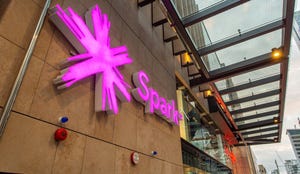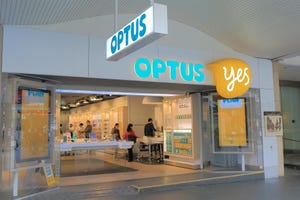Samsung Inks Indonesian 1x Deal
Emerging CDMA system supplier cements 1xRTT contract with PT Telkom, and Ericsson grabs a piece of the action, too
December 27, 2002

Samsung Electronics Co. Ltd. (Korea: SEC) has confirmed a $200 million deal with Indonesia's incumbent operator PT Telekomunikasi Indonesia Tbk. (Telkom) for a CDMA2000 1xRTT network (see Samsung Wins 1x Deal).LM Ericsson (Nasdaq: ERICY) has also won a contract with Telkom for the operator's 1xRTT rollout (see Ericsson Wins in Indonesia). No value was given for the Ericsson deal.These deals mark Indonesia as one of the emerging markets for CDMA infrastructure, as it was identified in the latest Wireless Oracle report, "The 'X' Factor: Competitive Positioning in the CDMA Infrastructure Market," along with India and China. Just last week, Nortel Networks Corp. (NYSE/Toronto: NT) announced a CDMA kit contract with Indonesian startup PT Wireless Indonesia (WIN) (see Nortel’s Quarter Perking Up? and Nortel Adds EV-DO Scalp).The Telkom deal also confirms Samsung as an emerging supplier of next-generation CDMA systems. The vendor has been delivering equipment for some months, and this new announcement concludes a commercial relationship first announced by the operator in October. It also coincides with the commercial launch of services in Surabaya, the main city in East Java, where 16 Samsung 1xRTT basestation transceivers are being used to provide access for up to 40,000 subscribers at 825MHz to 830MHz. Telkom put a price tag of $14.7 million on that particular delivery. The operator is using the 1xRTT systems for fixed wireless access rather than traditional "mobile" services, and will use it to provide a variety of services such as voice, Internet access, fax, email, SMS, and voicemail. The carrier believes using the CDMA system rather than other fixed wireless alternatives helps it to keep capex per subscriber costs to a minimum. The deployment of the Samsung equipment throughout Indonesia is part of what the carrier is calling its "Master Partnership Agreement – Packet-2 CDMA."The majority of the $200 million of equipment will be delivered and deployed during the next three years, with Samsung supplying basestations for an additional 330,000 lines in 2003, 220,000 more in 2004, and 210,000 in 2005.According to the Wireless Oracle report, Samsung had an 8 percent share of the $11.8 billion CDMA equipment market during the past four quarters (4Q01-3Q02). However, the 8 percent overall figure is more of a projection, writes the report's author, research analyst Gabriel Brown, as "Samsung does not offer firm figures for its mobile systems business, but instead alludes to the unit’s performance rather obliquely, and also because it is hard to judge the value of its recent contract wins in new export markets, such as China and India."Samsung is particularly strong in the niche market for CDMA2000 EV-DO infrastructure and handsets. It also has 1xRTT equipment contracts in its domestic market in South Korea with SK Telecom (Nasdaq: SKM) and KT Freetel Co., as well as with KDDI Corp. in Japan, to which it also supplying EV-DO equipment. Brown is bullish about Samsung's future as a CDMA network infrastructure supplier, "because it has proven experience in CDMA1x EV-DO and a leading position in Korea, which has become the world’s most sophisticated market for mobile data communications," he notes in the CDMA report. "We also note its success in exporting CDMA equipment to major carriers in China, India, and Japan. In addition, Samsung's strength in handsets will improve its ability to compete for any forthcoming upgrade contracts in North and South America."Of the major CDMA suppliers, which includes the likes of Lucent Technologies Inc. (NYSE: LU), Motorola Inc. (NYSE: MOT), and Nortel Networks Corp. (NYSE/Toronto: NT), "only Samsung Electronics has seen its share price rise since the beginning of 2002, and this is most likely attributable to strength in its non-infrastructure products, such as handsets, and its non-telecom products," adds Brown in his report.Ericsson, meanwhile, has won only about 1 percent of the CDMA2000 infrastructure market in the past four quarters, and its CDMA business has been hit badly by the financial collapse of its main customer, Leap Wireless International Inc. (see Leap Pushed Off Nasdaq). However, this deal with Telkom, a share of the CDMA business handed out by China Unicom Ltd. (see Ericsson Signs With Unicom), and a MoU to supply a 1xEV-DO upgrade to Brazilian operator Vesper all show that the Swedish vendor is still in the market.
In fact, Brown notes in his report that "CEO Kurt Hellstrom told an investor conference in New York that he would like Ericsson to be one of the top three CDMA suppliers and would look at acquisitions to achieve this." As achieving top-three status would mean buying the CDMA infrastructure business of either Lucent, Motorola, or Nortel, Brown does not believe that any such move is imminent, and that "consolidation will not happen until the industry is on a more stable footing, i.e. when suppliers are profitable at the operating level and have manageable debt."The good news for all these players, though, is that CDMA is a growing market. Although its use trails that of rival wide-area network mobile technology GSM, which accounts for 763 million subscribers at present, this year's 135 million CDMA users will grow by 192 percent during the next four years, reaching 394 million subscribers in 2006, according to projections by mobile industry research firm EMC.— Ray Le Maistre, European Editor, UnstrungThe latest Wireless Oracle report, "The 'X' Factor: Competitive Positioning in the CDMA Infrastructure Market," is available for $400. An annual subscription to the Wireless Oracle is ordinarily $1,250 but is currently available at the special introductory price of $899. For more information, including subscription information and research examples, visit the Wireless Oracle at www.wireless-oracle.com.Editor's Note: Light Reading is not affiliated with Oracle Corporation.
You May Also Like










